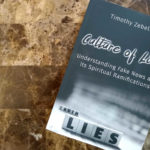A few years ago, my church changed its approach to Halloween. This also happened to coincide with my girls reaching an age where they could ask questions about the holiday—and they were asking them. Since I was raised to ignore Halloween, I had intended to follow suit with my own family, but now my church was putting me in a difficult position. Moreover, my girls were receiving conflicting messages about the nature of Halloween from people they respect in our church. These, among other reasons, prompted me to ask difficult questions about how Christians ought to approach Halloween.
Anyone who has investigated the subject knows how controversial and confusing it is. What few resources exist to guide Christians are often oversimplified, based upon faulty research, and completely contradictory to one another. Moreover, most of the suggestions for how to redeem Halloween are transparently shallow and unlikely to effect any meaningful change of thought and attitude.
Even among historians and folklorists, there is a dearth of understanding. Incredibly, there are more academic papers and university courses on Buffy the Vampire Slayer than on the history of Halloween. Moreover, much of what passes as history is little more than speculation. In fact, until recent decades, most of our knowledge of Halloween came from three books, two of which could be described as historical fiction.
Tired of superficial and contradictory arguments based upon anecdotes, faulty history, and abused Scripture verses, I determined to investigate the subject of Halloween for myself. This journey took me to an entirely different destination than I assumed it would when I began.
I learned how my preferred approach to Halloween—to simply ignore it—may have grave national consequences. I learned how and why three seemingly contradictory claims regarding the origin of the holiday are all correct: It is a pagan holiday; it is a Christian holiday, and it is an entirely secular holiday oriented around community. I learned how and why Halloween has waffled between serving as an innocent children’s holiday and a supernatural adult holiday. I learned the surprising origins of our monster lore, which can be traced to Genesis. I learned what it truly means to redeem a holiday. I learned the merit to the claim that Halloween affords Christians the greatest opportunity to engage culture with the gospel. I learned whether Christians have a moral obligation to reject Halloween. And perhaps most importantly, I learned how Christians can chart an approach to Halloween that is free from guilt and uncertainty.
Naturally, I had to put my findings together into a format that could help others. I wanted to provide others with a researched and sourced explanation of Halloween’s history and development—something authoritative that can be used to judge the myriad of historical distortions commonly presented as fact. More importantly, I wanted to provide others with a biblical framework for accurately evaluating what the Christian’s relationship with Halloween ought to be in light of our culture.
Thus was born my latest book, titled Unmasking Halloween: The Truth behind America’s Trickiest Holiday and How to Navigate It. Personally, I believe it will challenge every reader, regardless of their stance on Halloween. More importantly, I believe that it will make Christians who take it to heart far more prepared to engage culture. Unmasking Halloween equips Christians to evaluate culture, to stand firm in the face of adversity, and to minister more effectively.
Download your FREE copy of Unmasking Halloween. Paperback and Kindle options are also available for purchase through Amazon. You can learn more about the book and the questions it explores by clicking here.
Free Downloads
Share...
NO WORKS CITED AVAILABLE









